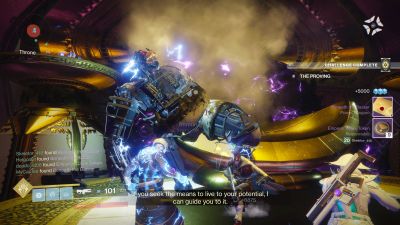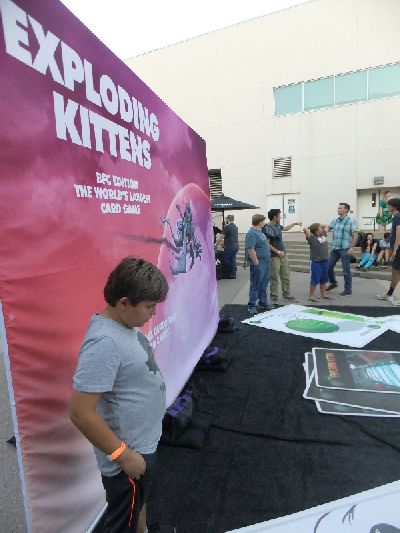Destiny 2

The first Destiny was my introduction to a lot of things about dedicated gaming – never before had I done high-level endgame content or a raid, interacted with weekly lockouts or put much thought into acquiring gear past the credits roll or actually played PvP to any meaningful extent. I work for a company that values the community and has done so long before games as a service was a thing, but Destiny was the first time I intensely followed strategies, uncovered secrets and – yes – abuse from the players. I went into Destiny 2 as a dedicated player and it has been my ticket into experiencing new things, the race to uncover secrets just after release and the thrill of going into a raid blind. I spent a lot of time in Destiny one and compared to a similar time three years ago, even more time in Destiny 2.
A lot of people have asked me about the experience, and I always tell them I’m not qualified to answer. My perspective is colored by thousands of hours worth of familiarity, and if you are one of the persons that have been holding out for the PC release tomorrow then my opinion is not going to give you meaningful insight. There are small things anyone can tell you – the second-to-second is a masterclass in FPS gameplay. The environment art is stunning and evocative. The game is better at telling you what to do and why you’re doing it than its predecessor was, but it still has a lot of its rules and mechanics obfuscated. Beyond those things, my opinions are those of someone in too deep, but luckily I don’t have to have any concerns about swaying anyone here.
Destiny 2 has a fundamentally different focus than Destiny. I used to think of it as rewarding skill rather than time investment as the gear and levels you acquire matter little in regards to how easy the endgame is to tackle, but on the other hand most of the endgame only gives you cosmetic rewards in the first place so that doesn’t seem fair either. Someone mentioned that it is lacking in incentive rather than content which is an argument I can understand, but it is also assuming a grind model from the first game that is just not there in Destiny 2. Yes, there is no real incentive to do the endgame content since the gear you will get from it will not make the endgame itself easier than gear you get from elsewhere, but on the other hand the idea that you’re running the raid solely to make it easier to run the raid seems a bit simplistic. Destiny 2 takes a different approach in its loot system and after having gotten most every piece of gear it has to offer I can’t say I would have wanted it to be different.
Part of me wanted the record books, the hunt for grimoire and the forty times I ran Winter’s Run to get that perfect roll for Stolen Will, but I also know that it was mostly just a measure of the time I put into it and the goals it had laid out for me didn’t serve to make the game deeper. Even as I find myself missing the things I had to do in Destiny, I remember all the other games I passed on during its first and second years and think that if Destiny 2 failed to deliver a robust endgame, it did so because it dared to be more responsible with the challenges it offered.
There are things I wish had been done differently, to be sure. The new PvP does not agree with me, and I preferred the more traditionally FPS-inclined Wrath of the Machine to the super mechanics-oriented King’s Fall and Leviathan. While I understand that the crazy weapons and offshoot subclass abilities were causing design problems, the game feels less interesting with them removed and everything turned down to an acceptable level of power. But I played Destiny 2 because I liked it an not out of habit, and it is an improvement over the first Destiny both in ways I love and in ways I feel hesitant about but I know is ultimately for the better.
Indiecade 2017

Indiecade moved again this year to Little Tokyo – The open areas and exhibition halls of the Japanese American National Museum are certainly well suited for the type of event it is and with the proximity to restaurants and shops it was a big improvement over last year in terms of space. Perhaps not quite as good as it was back in Culver City, but more suitable than UCLA for sure.
Another change was the notable absence of Sony, Nintendo and Microsoft – I don’t know how much this was a desire from the festival organizers to go further into their niche and how much was the console manufacturers pulling out, but their presence always brought with it a series of more traditional independent games that served to ground the festival in something a little bit more accessible. This was perhaps not strictly necessary for a festival that has always strived to highlight the innovative and esoteric, but Indiecade does feel a lot smaller without them and it was hard to find enough things to do to spend more than a couple of hours there.
That said, Indiecade is always a good time and this year had some of the past year’s really strong titles on display – notably OneShot and Dream Daddy from my own favorites – and I was delighted by Penny Blue Finds a Clue. I also had the chance to meet an old friend who had the more traditional game Yoku’s Island Express on display, a gorgeous game with an interesting twist on the exploration-platforming genre.